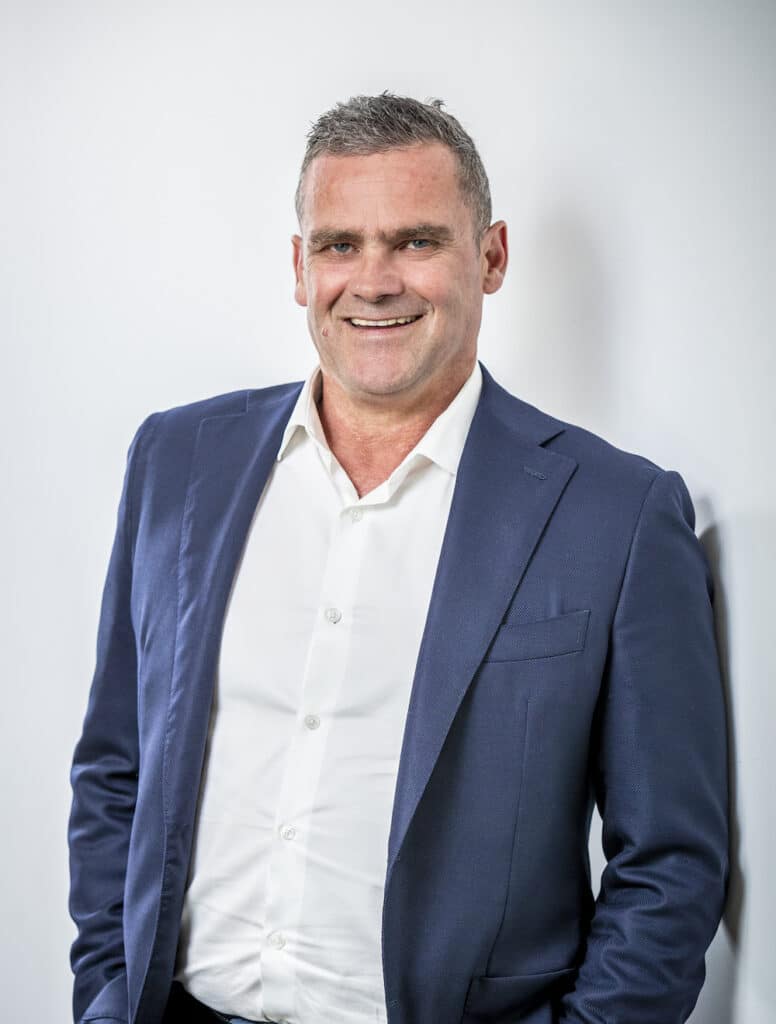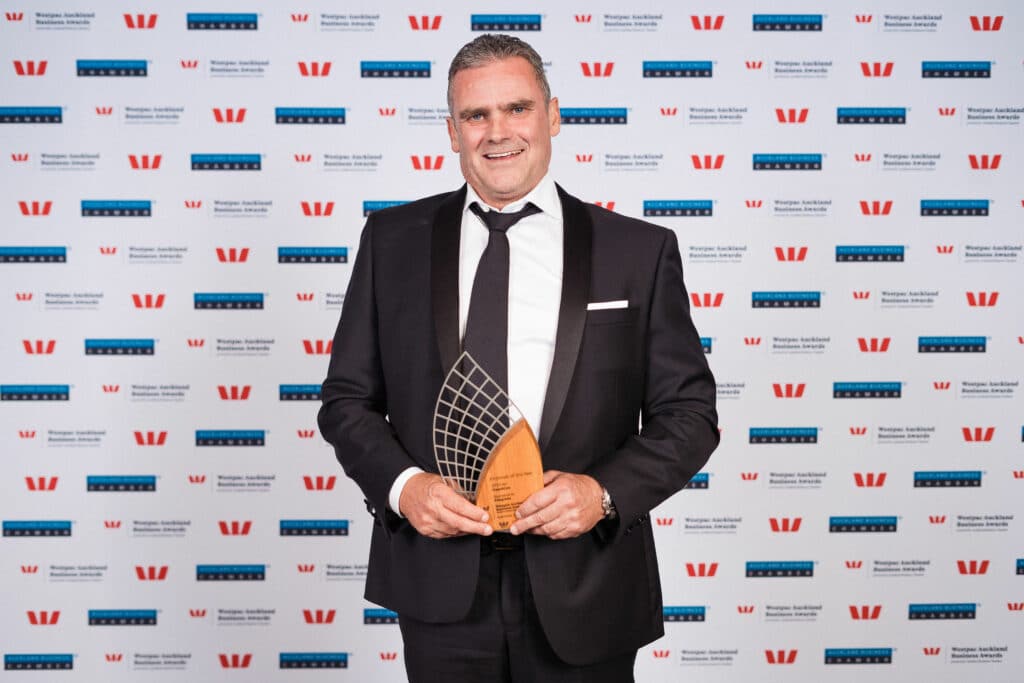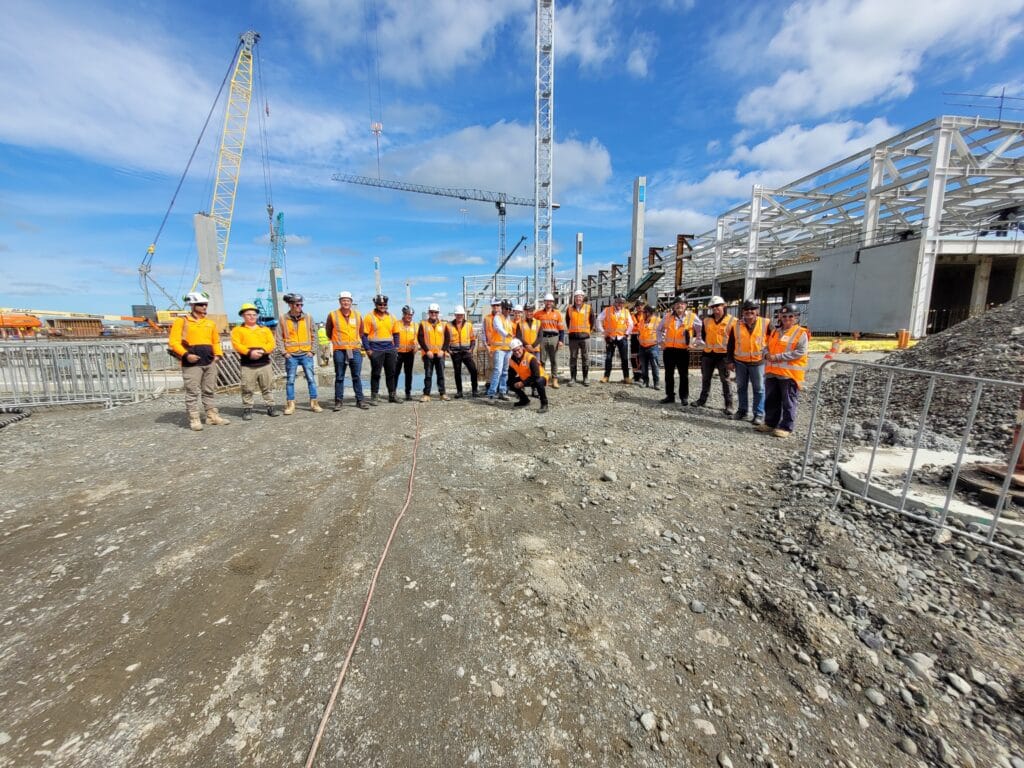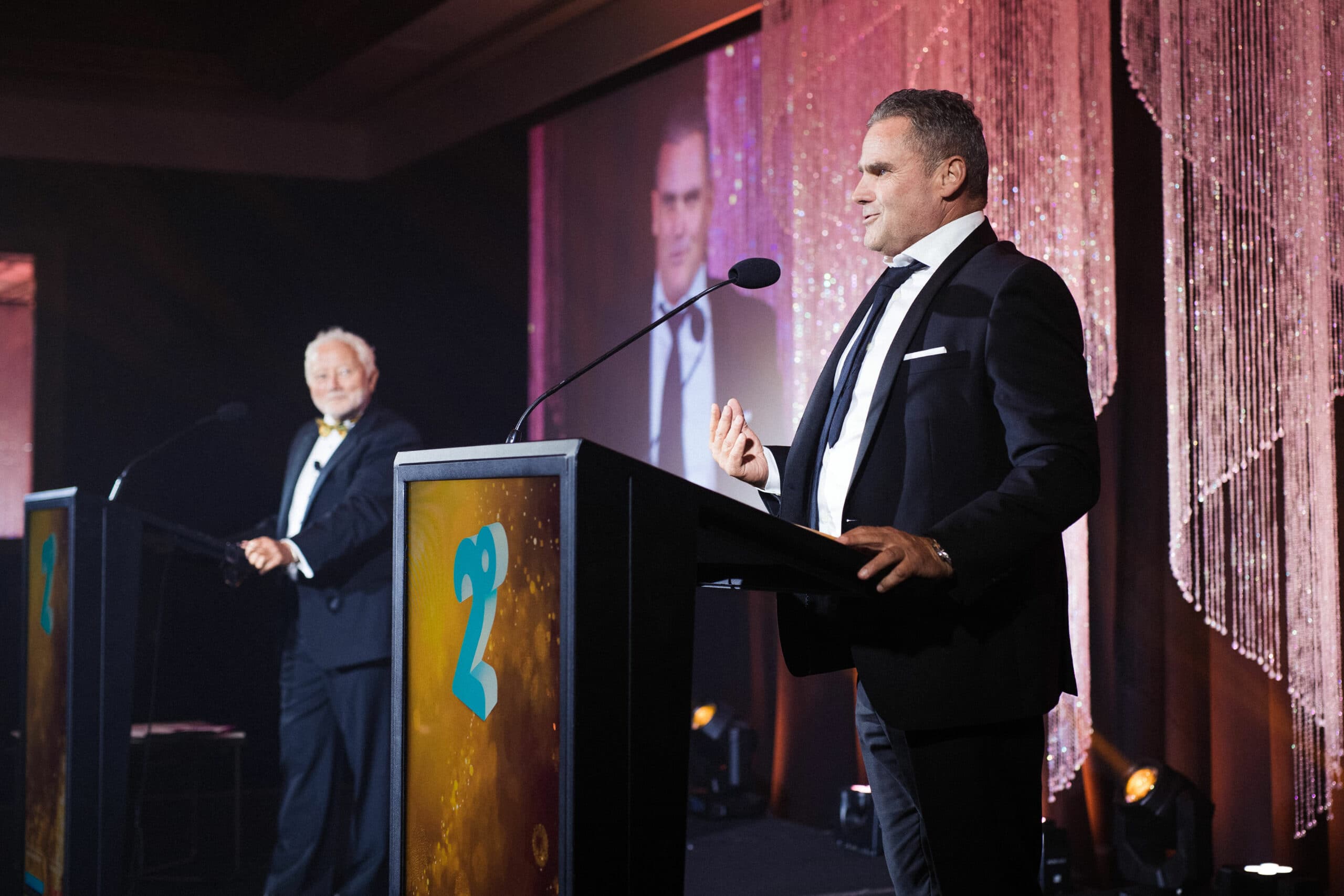
In the space of mere minutes, Hawkins’ GM, Major Projects Terry Buchan dispels a lot of my preconceived notions of what a typical construction boss might be like.
He’s a casual kind of guy with a relaxed humour, straightforward in his views, he’s not afraid to call a spade a spade.
But what’s refreshing is his willingness to call out the issues, take responsibility for the challenges the industry faces and lead from the front. Hawkins are developing some impressive initiatives that both support their team and embed sustainability into what they do.
Boom, boom, [bust?] boom?
As GM, Major Projects Terry leads projects over $100 million – which in Hawkins case is a wide portfolio and what he has dubbed a “boom, boom economy” for the construction sector.
“Whether that turns into a boom-bust economy over the next few years is anyone’s guess.”
A lot of people are saying that 2022 feels a lot like it did in 2007, there’s low unemployment, plenty of work, lots of projects forecast, low interest rates (albeit climbing), a shortage of skills, and war.
Margin is not risk
“When the pandemic hit in March 2020, we effectively lost $1.4 billion dollars’ worth of work. It just stopped that day.”
“We’ve had to rebuild over the past two years, which has been a bit of a learning curve for us. We’ve focused more on training and being sustainable – and by that, I mean creating sustainability through all levels of our business.”
To be sustainable you must have a decent margin, margin is not risk. There are people in the industry who think it is, but we disagree. It normally takes about a 1% margin to make sure you’ve got a buffer of funds in the bank to train your staff, because if you don’t train your people then you’ve got no one coming through and you’ve lost that sustainability as a business.
“Some parties will try to get you to cut margin by reducing your overheads. Doing this only decreases the support to your project team and you lose valuable experience from your business. Those $200 million projects require extensive support, so if you’ve reduced those support roles, you’re not going to be able to meet the client’s expectations – because those expectations will remain high whether the margin is there or not.”
Building people first
Hawkins was recently awarded Employer of the Year at the Westpac Auckland Central Business Chamber Awards, recognition of the company’s people-first mentality.
Terry credits the win, and the company’s ability to bounce back after the setbacks of 2020 down to putting the right people in the right roles, then backing them, continually training them and believing that the investment will pay off.
We have a great graduate and cadet training programme which has been running for the last seven years. We also offer ongoing training and professional development opportunities for all of our employees.
“In 2021, we also developed an exchange programme for our cadets, giving them the opportunity to work with our clients and subcontractors for a minimum of three months – and vice versa. Providing this additional experience has been hugely valuable for our young professionals, giving them whole new respect for those on the other side of the project.”

Industry collaboration
“All of industry need to look after each other better, says Terry, we need to understand each other’s businesses and support each other. If we don’t support each other and no one’s supporting us, there’s going to be no one around to deliver these key projects.”
“You can only get that kind of security through a high level of collaboration, and it’s the kind of collaboration we need more of in the sector.”
“That’s always been a bit of a problem in our industry, where some parties have been unwilling to share knowledge. Obviously, you have to be mindful of intellectual property and commercially sensitive information, but you can still collaborate and share good ideas, good systems and a better way forward that avoids that race to the bottom.”
When companies race to the bottom to try to win more work, operating with lower margins and a desperation to get some runs on the board – it’s then they face going bust.
“If there’s one thing a client can give us it’s a certainty of pipeline. If we have that certainty, we can make investments into our people, we can train our people and we can get a better result.”
“I would like to see the government planning with a similar certainty so we can flatten the government infrastructure and construction curve. If there was better collaboration and coordination of these large projects, then main contractors and the contracting industry could plan better. We need an infrastructure plan that removes some of the politics.”
Planning for the unplannable
So what keeps Terry awake at night? Trying to recruit and retain good people.
“While hope is not a strategy, I do hope that the 50,000-odd apprentices that are currently out there in the market don’t end up leaving New Zealand when there is a downturn in work.”
Terry says the current limitations of our supply chain are also cause for concern. “If you planned a project taking into account all of the supply chain issues, you’d probably never get a project off the ground. Although that plan might be realistic, you’re never going to get funding for it.”
“At the moment, it’s a case of whoever pays the most gets their materials on the ship, with building consents also becoming difficult to obtain. You somehow need to specify the exact materials being used two years out from construction, before you’ve even procured your trades.”
I believe too much ownership and responsibility is put onto councils. We, the industry, whether it be designers or builders should be taking more responsibility for consents because we’re the ones who have the experience.

Innovative resources and good contracts
“There’s great innovations that people don’t necessarily know much about, such as BIM technology, that could be a powerful tool if we utilise it better.”
“The opportunities are there. It’s whether we can keep up with the skilled resource required to leverage those opportunities.”
Terry’s message for fellow contractors is clear;
Sign up to good contracts and send the unrealistic ones back. If we keep accepting impractical conditions and 200 pages of amendments to a reviewed contract, we’re going to suffer and we’re not going to change as an industry.
Common ground and connection
Terry says the best thing about being a member of Property Council is the connections you make. “You’re on common ground, you’re not competing, everyone is on a level playing field.”
His message for the industry is everything is connected. “Don’t be afraid to work in a different part of your business or someone else’s business, because you can learn a lot.”
One of the best things to come out of the past couple of years is that we have gotten a lot closer with our clients, developers and trades and we all understand each other a lot more. My hope is that our industry can be a lot more connected and collaborative moving forward.
About the City Shapers Series
The City Shapers Series is a collection of interviews with some of Property Council’s most prominent members. The series is about showcasing the people in property – the city shapers who lead extraordinary teams, develop exemplary projects and demonstrate the very best of the New Zealand property industry.
We aim to highlight the property industry’s role as an important contributor to New Zealand’s economy and our members as ‘city shapers’, building communities for Kiwis to live, work, play and shop.
Author: Kelly Taylor

